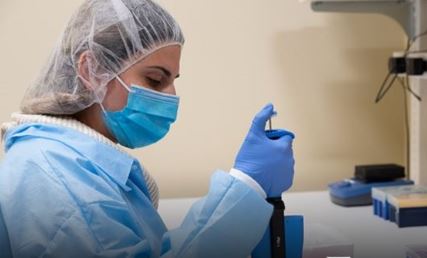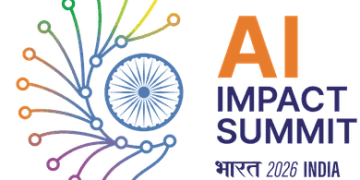Susan Athey, Kendall Hoyt and Michael Kremer
As countries around the world ponder strategies for developing a COVID-19 vaccine, it should be clear that the fastest and most effective approach is to work together. More than any other single intervention, a widely distributed, effective vaccine would allow the world economy to restart. With $375 billion in global wealth evaporating each month, that moment cannot come soon enough.
So far, world leaders have pledged $8 billion in funding for the Access to COVID-19 tools (ACT), a global partnership to develop diagnostics, drugs, and vaccines. Yet that is only a fraction of the investment needed to bring a vaccine rapidly to scale. Fewer than one in ten vaccine or drug candidates that enter clinical trials is eventually approved for use. And, once approved, scaling up production to the necessary levels will introduce many more uncertainties. Vaccine manufacturing is an intricate process, requiring approval by regulators at each stage and in each facility. With some of the COVID-19 vaccine candidates having been built on hitherto unlicensed platforms, these safety and quality-control protocols could pose additional challenges to rapid deployment.
The best way to manage these risks is to collaborate. Multilateral investment in a diversified portfolio of vaccine candidates would help scale up production capacity as soon as a vaccine’s safety and efficacy have been established. Provided that much remains unknown about the novel coronavirus, we estimate that an investment of about $145 billion (.17 per cent of world GDP) would be ideal, but that a programme just half that size would yield substantial benefits. Although the United States and China are pursuing individual investment strategies, both could still advance their own national interests through international collaboration, either by way of the ACT Accelerator or via pooled contracts negotiated directly between countries and firms.
There are four primary benefits to collaboration. First, each country can reduce its own risk of having not invested in the right vaccine. By diversifying investment across a broad portfolio of technological approaches, all countries can improve their chances of having access to a successful vaccine. For example, our analysis of past vaccines suggests that if a country invests in two candidates that have begun clinical trials, the chance that one will succeed is at most one in three, and could be much lower. Yet if that country were to invest in a dozen or more candidates, the odds of near-term success would increase to more than eight in ten.
Moreover, the more distinct approaches there are in the mix, the greater the productive capacity that can be repurposed when some candidates fail. But the portfolio must not only be large; it also must be coordinated, because countries acting collaboratively can achieve far greater diversification than could any country acting on its own. Individual countries might all invest in similar candidates, which might all then fail for similar reasons.
Second, international collaboration allows for more resource pooling, which is needed to scale up investments in manufacturing capacity. Left to their own devices, individual countries are unlikely to invest in sufficient capacity to meet their own people’s needs, let alone global demand. If each country is “locked in” with a small set of suppliers, it will have less leverage to induce those firms to innovate and accelerate their manufacturing processes. And with significantly expanded capacity, there will be less conflict over vaccine access once successful candidates emerge.
Third, global coordination reduces the risk of supply-chain disruptions. Just as shortages of swabs and reagents have delayed coronavirus testing, so shortages of glass vials, bioreactors, or adjuvants (substances used to boost the body’s immune reaction to a vaccine) could delay efforts to deploy new treatments and vaccines. Biopharmaceutical production relies on a tightly linked global web, such that even the US, which ranks high on indices for biopharmaceutical innovation, is a net importer of most medical supplies.
Without international coordination, export controls imposed in response to the pandemic could interfere with the ability to scale up production in a timely fashion. By contrast, a substantial global effort would provide the necessary resources to anticipate and mitigate supply-chain bottlenecks, as well as reallocate essential ingredients and materials to the vaccine candidates that are the highest priority for mass production.
Fourth, to maximize the health and economic benefits of a vaccine, health-care workers and vulnerable populations in all countries must have top priority in receiving it. Here, international collaboration would allow participating countries to pursue a needs-based vaccine-allocation strategy, which is crucial for ending the pandemic as quickly as possible, and for restoring trade and travel with minimal risk of reintroducing infections from abroad. All countries have an imperative to protect essential workers, high-risk citizens, and those who must travel. And in today’s interdependent world, every country will benefit from enabling as many others as possible to restart their economies.
Countries that insist on pursuing individual investment strategies do so at considerable risk. They would be far better off with guaranteed access to the first tranche of successful vaccines under a global mechanism. A proprietary scheme that locks up supply among a small number of candidates may well fail, putting that country back at square one. Even a country with a unilateral investment programme would be serving its own interest by collaborating internationally. If its own candidates fail, it would still be in line for a vaccine developed from the internationally sponsored diversified portfolio.
We need the medical countermeasures to COVID-19 to proceed at an unprecedented pace, and on an unprecedented scale. Only a global response can ensure this outcome.
Susan Athey is a professor at the Stanford Graduate School of Business. Kendall Hoyt is Assistant Professor of Medicine at the Geisel School of Medicine at Dartmouth College. Michael Kremer, a 2019 Nobel laureate in economics, is Gates Professor of Developing Societies at Harvard University. © Project Syndicate.






































